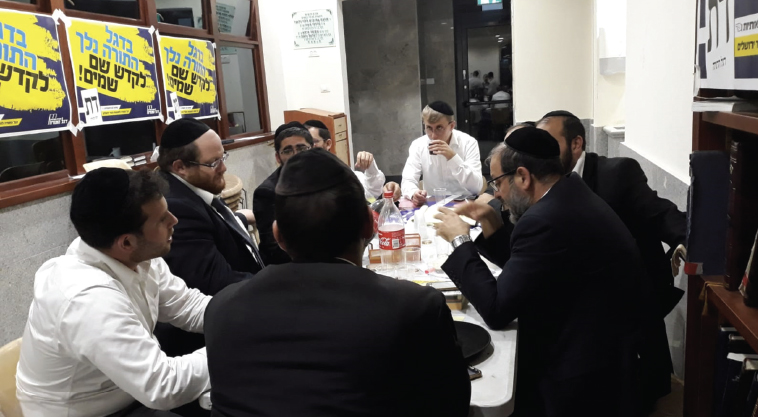Degel’s English Campaign Speaks for Itself


Jerusalem’s voters have spoken, and many had Anglo accents.
When polling places opened in Israel’s capital on Tuesday, October 30, the ballot contained one notable change: For the first time, the litvish Degel HaTorah party put forward its own slate of candidates for city council, splitting off from their United Torah Judaism (UTJ) alliance with the chassidic Agudas Yisrael party.
Running independently meant Degel was scrounging for every vote — and, necessity being the mother of invention, that led the party to target English-speakers. The effort has to be reckoned a success: A Degel in-house analysis of voter turnout in the heavily Anglo areas of Ramat Eshkol, Neve Yaakov, Har Nof, Romema, and Ganei Geula shows an increase of 7,500 ballots cast over the last election in 2013.
That uptick may have been enough to effect a visible change in the makeup of the city council. Whereas the previous UTJ grouping held eight seats, the new arrangement produced six seats for Degel and three for the Agudah, an overall net gain of one seat. In addition, the mayoral candidate that Degel backed, Moshe Lion, heads to a run-off next week with Ofer Berkovich. The Agudah also undertook a campaign drive with Anglo voters, but is still tabulating the results as of press time.
“This was the first time that many English-speakers felt like they were voting for a party that cares about their needs,” says Rabbi Nechemiah Malinowitz, a Degel volunteer who headed the party’s Anglo get-out-the-vote operation, working together with his younger brother Yisrael Meir.
Rabbi Malinowitz tells Mishpacha that a few weeks before the election, he advised two Degel city council candidates, Elchanan Grossbaum and David Blumenstock, that the party was passing up a large untapped resource — English-speaking voters in Jerusalem sympathetic to their cause.
“I know them from my work with American bochurim and avreichim as rosh yeshivah of Gevuros Yitzchak and head of Camp Adirim, as well as in my capacity in Lev L’Achim,” says Reb Nechemiah, who is also the oldest son of Rabbi Chaim Malinowitz, senior editor of the ArtScroll Schottenstein Talmud and rav of the Beis Tefillah Yonah Avraham kehillah in Ramat Beit Shemesh. “I told them Degel HaTorah needs to reach out to Americans in their mother tongue. This had never been done before. Americans didn’t even know they had city council representatives like Grossbaum and Blumenstock who could help on a wide range of issues.”
Rabbi Malinowitz came to Israel 20 years ago with his parents when he was 20, and has learned in Israel one needs to be active. “I know the American community in Jerusalem. We took a room in the Degel campaign headquarters and got to work. We turned to rabbanim of American kehillos in Jerusalem and asked for letters of support in English.”
One of those rabbanim, Rav Yitzchak Berkovits, head of the Jerusalem Kollel, explained in his letter that bnei Torah should not view voting in local elections as a matter of politics, but rather as a matter of making basic hishtadlus to ensure Anglo neighborhoods receive the municipal and school services that are their due. Rabbi Malinowitz also helped write English campaign materials.
“I’m not such a great writer, but I sat with a few other people and wrote an eight-page booklet in English about the candidates, the importance of voting, how we could benefit, and so forth. My words came from the heart, and apparently penetrated hearts.”
Malinowitz also helped organize the ground operation, recruiting operatives in English-speaking areas to rally their neighbors in support of Degel and make sure they were going to vote. The pinnacle, on election day, was a call center staffed by 30 Anglo bochurim.
“When someone with an American accent tells you to go vote Degel, the message is received differently,” Malinowitz says. “The results speaks for themselves.”
(Originally featured in Mishpacha, Issue 734)
Oops! We could not locate your form.













